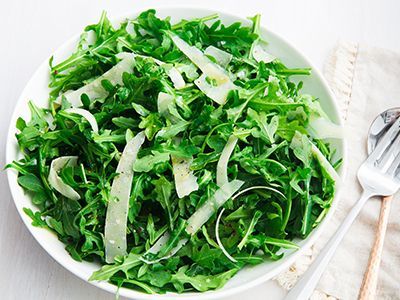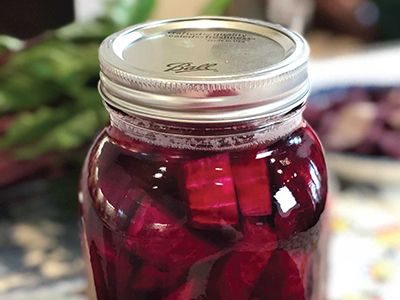Dr. Su's Blog
Boost Your Nitric Oxide Levels & Enhance Vascular Health with Beet Kvass

When we think of cardiovascular health, our first thoughts usually turn to cholesterol and fats. While that can play a role, heart health is actually a complex dance between inflammation, fats, genetics, immune function, and blood flow.
Nitric Oxide and Vascular Health
Nitric oxide is a gas produced by the lining of our blood vessels, known as the endothelium. Formerly known as Endothelium-Derived Relaxing Factor, nitric oxide acts to modulate the tone of our blood vessels, inspiring them to relax and perfuse with blood and oxygen. Consider how important it is to have enough nitric oxide in conditions such as high blood pressure, where vessels have a difficult time relaxing, thereby keeping the pressure elevated. Low levels of nitric oxide can also lead to vessel constriction and deprive the coronary arteries of enough oxygen during exercise or stress, leading to conditions such as chest pain or angina.
Nitric oxide also protects the vessels from damage that can be caused by small LDL cholesterol and platelets. We know that suboptimal levels of nitric oxide also heightens vascular inflammation. This promotes oxidation of LDL, and formation of the dreaded foam cells, which are the precursors to atherosclerotic plaques in the arteries. Again, as discussed in previous articles, heart attacks and stroke are caused by more than elevated cholesterol, and this may be one of the precursor steps that causes cholesterol to become pathological.
Perhaps it is not common to correlate heart disease with erectile dysfunction, but if you think about it, both require optimal vessel relation and blood flow. For both men and women, healthy sexual response requires relaxation of local tissue for blood engorgement to occur. Again, nitric oxide is at play here!

Foods that Support Healthy Nitric Oxide Levels
Of course, our bodies are responsive entities, and for the nitric oxide synthesis to work optimally the body must be rich in antioxidants, so eat your berries and richly-colored veggies! All green vegetables contain high levels of dietary nitrates (note this is different than the sodium nitrates used to preserve processed meats, which is cancer-causing). Of all things, arugula contains the highest levels of dietary nitrates (wait, did arugula just get way more sexy?). This is followed closely by kale, spinach, and swiss chard. Dark chocolate contains phenols that increase nitric oxide levels.
Lastly, and the star in one of my favorite winter beverages, below, are beets! Beets are one of the best ways to boost blood levels of nitric oxide. So, relax, and eat your vegetables for better vascular health.
What is Kvass?
Kvass is a lacto-fermented drink that comes to us from Eastern Europe and Russia. Originating in Ukraine, it was first mentioned in a history book of Slavic people in the year 996 A.D. According to Lubow A. Kylvska, author of Ukranian Dishes, “no traditional home was without its bottle of beet kvass. It’s pleasing, sour flavor was often added to soups and vinaigrettes”.
Russians have been consuming kvass for over 1,000 years! It was enjoyed by czars as well as peasants. Nowadays, it is common to see barrels of kvass on the streets of Moscow in Russia because it’s considered a digestive tonic and an excellent thirst quencher.
There are a few types of kvass. Kvass is typically made from high-quality sourdough rye bread. However, kvass can be made from benefit-rich beets or various fruits, especially for those concerned about the grains due to diet restrictions. Much like the Russians, my favorite is beet kvass.

Beet Kvass
Beet kvass is easy to make, slightly sweet, briny, and salty all at once, and is a delightful adjunct to a rich meal, as well as a simple, nourishing daily tonic.
If you’re looking for healthy way to add a fresh zing to your winter meals, make some beet kvass. Not only is it tasty, you’ll reap the benefits of fortifying your blood, supporting liver detoxification, nourishing your gastrointestinal microbiome… and boosting blood levels of nitric oxide.
I use the recipe from Sally Fallon’s Nourishing Traditions. Enjoy!
Ingredients
3 large organic beets, coarsely chopped
¼ cup whey (I drain organic yogurt in the fridge on a cheesecloth for a few hours and use the resulting whey, plus the “yogurt cheese” is delicious with chopped nuts or pesto)
1 tsp sea salt
Water
Directions
Place all ingredients in a 2 quart glass jar. Add water to fill the container. Stir well and cover.
Keep kvass at room temperature for 2-4 days (you can taste it periodically for tanginess), then transfer to the refrigerator.
Drink ½ cup daily, or as desired. For a fun seltzer, you can even add it to sparkling water. Enjoy!
Join the Mederi Center community by signing up for our email list! We send several emails a month with product promotions for patients, practical tips for healthy living, blogs written by our practitioners, information about events, and other news. You can unsubscribe at any time.

Meet Dr. Su!
Dr. Susan Saccomanno, ND, LAc is a contributing writer to the Mederi Blog and a practitioner at the Mederi Center Clinic in Ashland, Oregon. She has over a decade of experience as a family physician with a specialty in holistic cancer care and chronic illness. Dr. Su has been practicing at the Mederi Center since 2014, where she blends the best of naturopathic and Chinese traditions.
Dr. Su became a doctor out of her passion for helping people achieve vibrant health. She received her Naturopathic Doctorate and Master of Oriental Medicine degrees from National College of Natural Medicine, and extended her studies in integrative cancer care in the Eclectic Triphasic Medical System (ETMS), founded and taught by Donnie Yance.


